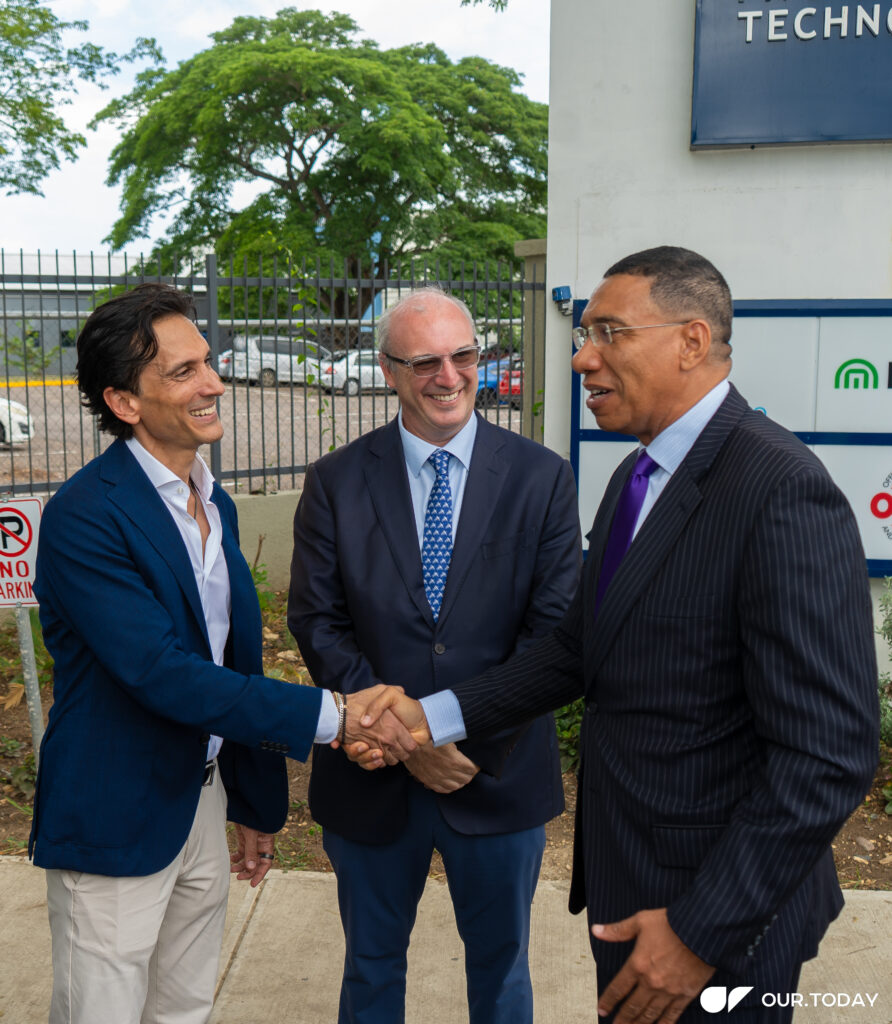Stable Economy, Safer Communities Paving the Way for Industrial Investment in Jamaica, Says Prime Minister Holness

Prime Minister the Most Honourable Andrew Holness says that Jamaica’s transformation into a stable, investor-ready economy helps to make the $50 million redevelopment of the former Ariguanabo textile site possible.
Speaking at the ribbon-cutting ceremony on Tuesday (June 24), Prime Minister Holness gave a wide-ranging address on the deep connection between economic policy, investor confidence, national security, and Jamaica’s industrial revival.
“The entrepreneurs saw that there was a stable economic environment, and that is one of the most important conditions for any of these projects to succeed,” said Prime Minister Holness. “Even before we decided as a government to develop the Morant Bay Urban Centre, we had to first stabilize our debt situation.”
The Prime Minister reminded the audience that in 2016, Jamaica’s debt-to-GDP ratio stood at approximately 130 percent. Today, that figure is 68 percent and falling. He explained that this reduction is not just a fiscal milestone but a major signal to both local and international investors that Jamaica is managing its affairs responsibly.
“When a businessman looks at a factory that has been abandoned for decades and considers bringing it back to life, they do not just look at the concrete or the steel. They have to test the business case. What would the tax policy look like in year two? What happens if the government suddenly increases taxes? These are the questions that affect decisions. And what we have done as a government is to give them ten budgets in a row without introducing any new taxes. That is a signal of consistency, and it builds trust.”
The Prime Minister explained that while traditional incentives still have their place, especially under the Omnibus Incentives Act and the Special Economic Zone legislation, government policy now leans toward broader, more sustainable development support.
“We have always struggled with how to design incentives. If you give away too much, you end up with fiscal pressure. But there are other meaningful ways to support businesses. One of the most important ways is by investing in a well-trained workforce. When the government absorbs the cost of training, that is a real incentive to business,” he said.
He pointed to public institutions such as the HEART/NSTA Trust as critical to this strategy, especially in delivering training that aligns with market demand. These investments, he said, create value not only for individual workers but for the entire economy.
The Prime Minister also addressed the relationship between national security and investor confidence. He acknowledged that part of the reason developments like the Linstead site were overlooked for so long was the negative perception surrounding safety and crime in the area.
“If a place is seen as unsafe, the cost to secure it becomes too high, and the business model fails. This is the burden that crime places on our economic development. That is why we cannot be hesitant about dealing with the gangs and organized violence that have held back places like Spanish Town for decades.”
The Prime Minister emphasized that the government’s peace strategy is a central pillar of its broader economic agenda.
“Less than a thousand criminals are responsible for the perception that Jamaica is unsafe. They have been largely addressed, and we will not relent. Because once peace is achieved in places like Spanish Town, you will hear the sound of investment rushing in. The infrastructure is already here. The people are creative and skilled. The only missing ingredient is public safety, and that is what we are restoring.”
Prime Minister Holness concluded by reinforcing that peace, stable governance, and opportunity are the foundations of Jamaica’s national growth strategy.